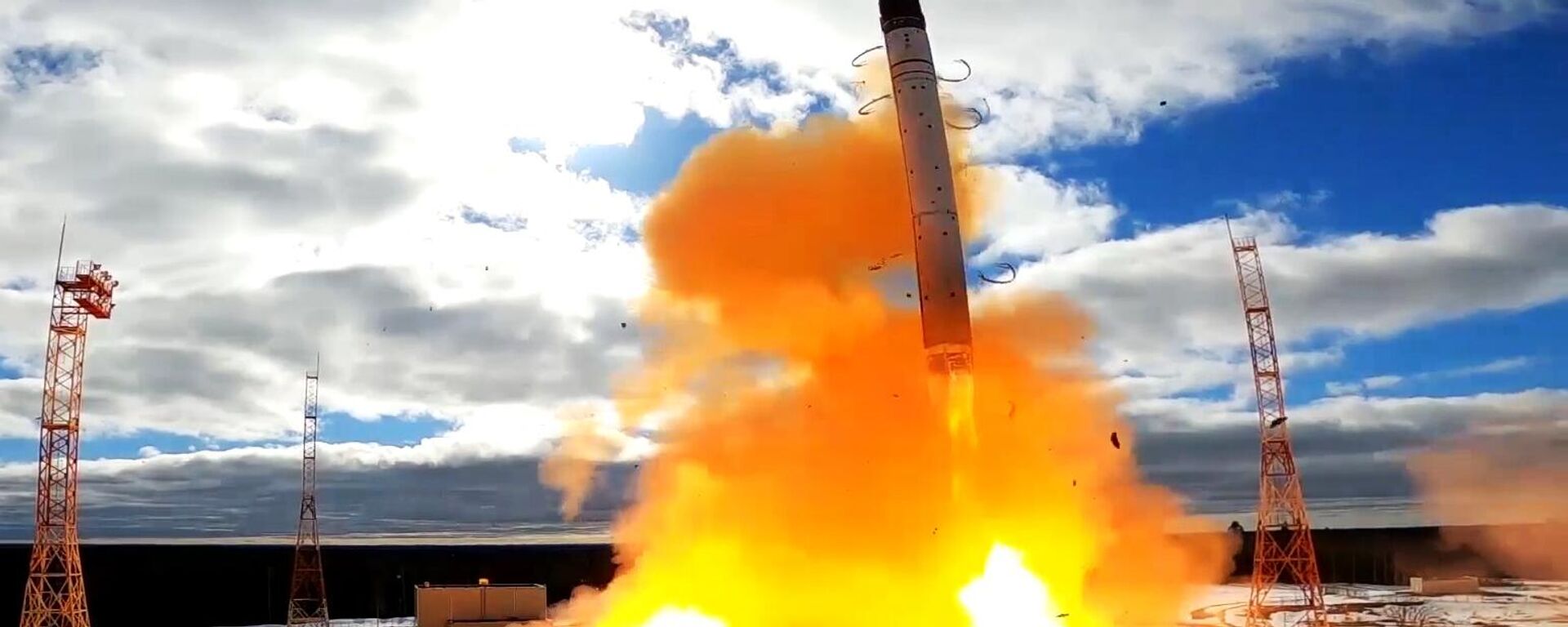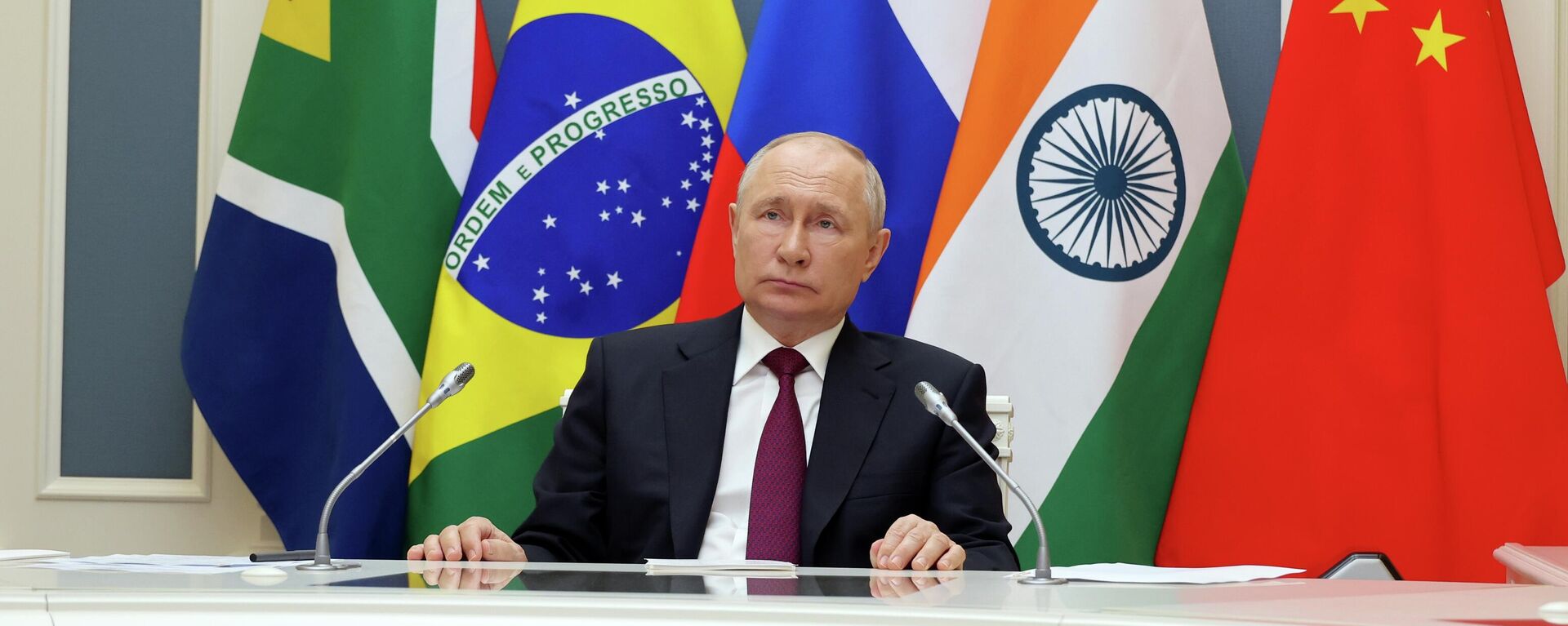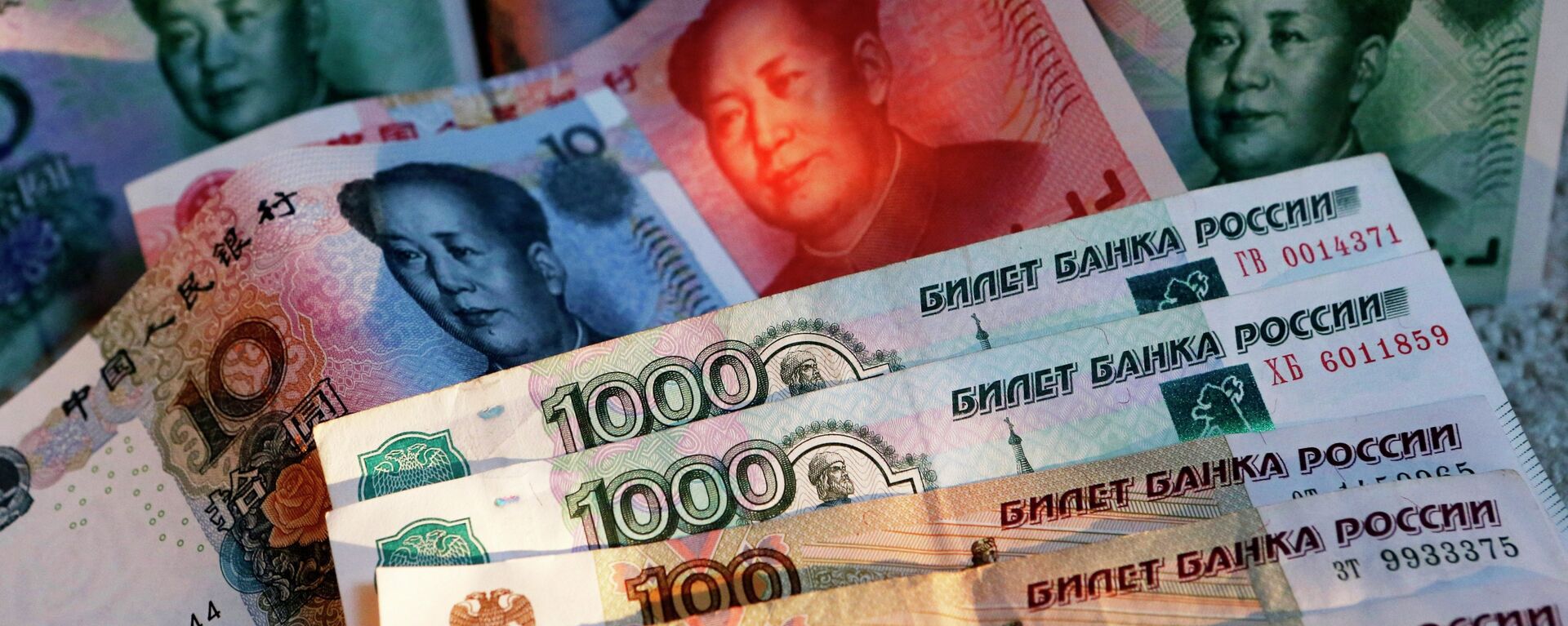Russia's Rapid Growth Shows Immunity to West's Cold War Tricks That Sapped USSR
17:16 GMT 29.02.2024 (Updated: 09:37 GMT 01.03.2024)

© Sputnik / Maksim Blinov
Subscribe
President Vladimir Putin outlined his vision for Russia's future development and emphasized its growth potential together with BRICS during his State of the Nation speech on Thursday. He stressed that a lasting world order is impossible without a strong Russia.
Russian President Vladimir Putin emphasized the strategic objectives and matters that are instrumental in ensuring steady long-term development for Russia on Thursday as he delivered his address to the Federal Assembly in Gostiny Dvor, Moscow.
"It was a very powerful speech," Adriel Kasonta, a London-based foreign affairs analyst and former chairman of the International Affairs Committee at the Bow Group think tank, told Sputnik.
"It is related to the foreign policy that Russia is pivoting away from the West, that it's putting a strong emphasis on having closer ties with its BRICs partners and allies and also puts a strong emphasis on national rejuvenation," the analyst continued.
During his speech, Putin pointed out that Russia is on track to becoming one of the world's four largest economies in the near future. He drew attention to the fact that last year, the Russian economy grew faster than the global average and outpaced any growth seen in the G7 states.
The Russian president pointed out that by 2028, BRICS' share of the global economy at purchasing power parity will increase to 36.6%, whereas that of the G7 will drop to 27.8%.
"It is very significant to remember that these emerging economies, developing economies, present a profound potential of growth," Kasonta said. "The countries which are seen as the G7, they are declining. Their population growth is declining. Their economies are very weak because of the fact that they engaged themselves in the proxy war with Russia and also that they are subsidizing the war effort in Ukraine. So in my opinion, the West is done."
West Tried and Failed to Undermine Russia
After the beginning of Moscow's special operation in Ukraine, the US and its allies imposed a plethora of sanctions against Russia, targeting all sectors of the nation's economy. Russia was severed from the SWIFT system and its sovereign funds were frozen in the West.
Nonetheless, Russia has demonstrated remarkable economic growth and bolstered ties with Asian and African countries, the Arab world and Latin America, since.
"I think that Western sanctions only helped Russia to make a clear line of distinction between what is represented by the declining West and what is the future," Kasonta noted. "I think that the West doesn't understand that the sanctions are just a laughing stock for the rest of the world. As we know, the rest of the world is keen to do business and have diplomatic interactions with Russia."
Having admitted that the effect of sanctions has fallen short of the West's expectation, the US and its allies are now focused on funding their respective military-industrial complexes. During his address, President Putin lambasted the West for attempting to drag Russia into an arms race, stressing that similar tricks were used against the USSR in the 1980s to facilitate its collapse and demise.
According to Kasonta, it's clear that Russia won't fall into this trap again: the country has adopted a balanced approach to developing its defense sector as well as other sectors of the economy.
The West's old Cold War tricks no longer work, echoed Paolo Raffone, a strategic analyst and director of the CIPI Foundation in Brussels.
"The old Cold War plan to unpack Russia and force it to become a 'space' of nation-states has failed since Russian elites chose Putin at the end of 1990s," Raffone told Sputnik. "Western misunderstanding of what is the renewed strength of Russia under Putin’s leadership is astonishing. Today, Russia has nothing to do with the old USSR. Western attempts to launch a second phase of the Cold War (with Russia and China) are shortsighted and destined to fail. The global shift from the West to the rest is already happening, as Putin underlined."
The crux of the matter is that the West cannot uphold its monopoly in terms of global logistics, trade, or technology, according to the expert.
"The weakness of the West is represented by the failure of the effectiveness of sanctions against Russia (but also against Iran, China and other entities). The global transport infrastructure, trade and financial system is developing in spite of the West, pointing at an alternative to Western dominance in those areas," Raffone pointed out.

29 February 2024, 14:11 GMT
West Destroying Itself
"As we can see, the American empire is destroying itself by simply putting more money in the military, to sustain its multiple military bases around the world and to invent new weapons of mass destruction instead of concentrating on the well-being of their own population. Let us look at what is happening on the Texan border. I mean, there's an invasion over there and the level of living standard in the United States is decreasing," Kasonta underscored.
While the US and G7 are seeking ways to seize Russia's assets to fund their proxy war in Ukraine, the people in the West have grown weary of the ongoing conflict.
Various surveys in the US and the EU have demonstrated that Westerners no longer believe that the Kiev regime could win; furthermore, they say that the Western leadership should seek a "compromise settlement" to stop the conflict.
Regardless of this obvious shift in popular opinion, the Western leadership is continuing to push ahead with Ukraine's militarization. According to Raffone, it's unlikely that this bellicose rhetoric will change before the US elections. For their part, leaders of major EU powers will follow in the footsteps of Washington.
"The United States will outmaneuver itself (..) how long you can sustain this - a never-ending arms race - there is a certain limit to that. And the limit will be that the people in these countries will no longer be able to survive. And they will go to the streets and we will possibly have a civil war," warned Kasonta.



